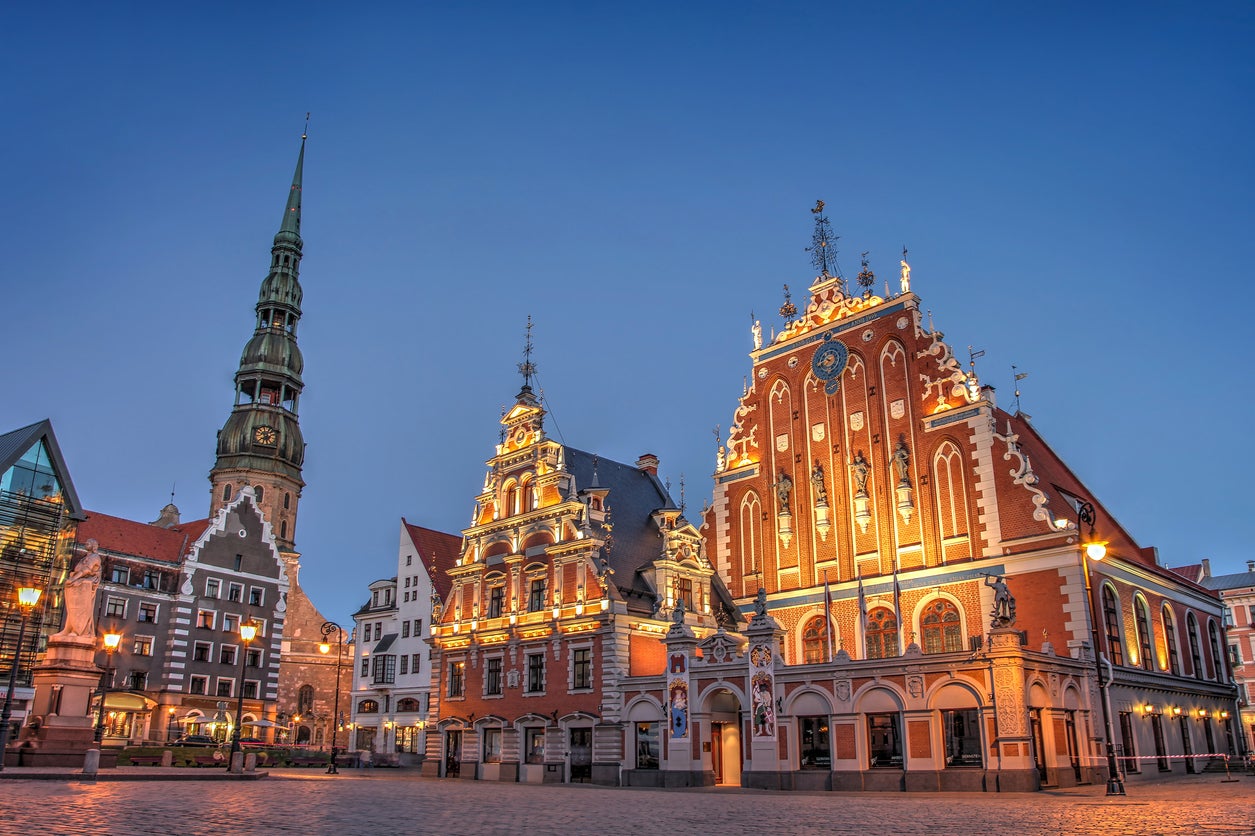This website uses cookies so that we can provide you with the best user experience possible. Cookie information is stored in your browser and performs functions such as recognising you when you return to our website and helping our team to understand which sections of the website you find most interesting and useful.

Seventy-five years after Winston Churchill first used the term “Iron Curtain,” three Baltic nations are about to created a “travel bubble” that will exclude outsiders while the coronavirus pandemic evolves.
The prime ministers of Estonia, Latvia and Lithuania have agreed to open their borders to each others’ citizens from 15 May.
Travellers from the three former Soviet republics will be able to travel freely – but a Baltic barrier will block tourists from the neighbouring nations of Russia, Belarus and Poland, as well as travellers by air and sea from elsewhere.
The Estonian prime minister, Jüri Ratas, tweeted: “It’s a big step towards life as normal”.
In a video call, he agreed with his counterparts in Latvia and Lithuania “on opening internal borders between Estonia-Latvia and Latvia-Lithuania to the people of Baltic States from 15 May”.
At present, only Estonian nationals, residents and foreign citizens with family members are able to enter the country – with two weeks’ of mandatory self-quarantine. The other two republics have similar rules.
In Latvia, which has a population of almost 2 million, 18 people have died from Covid-19. The death rate in the UK is 45 times higher.
The Baltic states have concluded that each “had successfully managed the spread of Covid-19 and trust each other’s health care systems,” according to the Lithuanian government.
Anyone arriving from outside the bloc will be required to spend 14 days in quarantine.
The Lithuanian prime minister, Saulius Skvernelis, said: “We will keep to this principle when dealing with countries where the situation is very bad, which did not take measures to control the virus spread.”
Created with Sketch.
Created with Sketch.
1/25 Trieste, Italy
Trieste, Italy
Getty Images/iStockphoto
2/25 Lausanne, Switzerland
Lausanne, Switzerland
Getty Images/iStockphoto
3/25 Boulder, USA
Boulder, USA
Getty Images/iStockphoto
4/25 Bergen, Norway
Bergen, Norway
Getty Images/iStockphoto
5/25 Hobart, Australia
Hobart, Australia
Getty Images/iStockphoto
6/25 Chigasaki, Japan
Chigasaki, Japan
Wikimedia Commons/運転太郎
7/25 Bolzano, Italy
Bolzano, Italy
Getty Images/iStockphoto
8/25 Bordeaux, France
Bordeaux, France
Getty Images/iStockphoto
9/25 Innsbruck, Austria
Innsbruck, Austria
Getty Images/iStockphoto
10/25 Porto, Portugal
Porto, Portugal
Getty/iStock
11/25 Aachen, Germany
Aachen, Germany
Getty Images/iStockphoto
12/25 Reykjavik, Iceland
Reykjavik, Iceland
Getty Images/iStockphoto
13/25 Savannah, USA
Savannah, USA
Getty Images/iStockphoto
14/25 Postdam, Germany
Postdam, Germany
Getty Images
15/25 Basel, Switzerland
Basel, Switzerland
Getty Images/iStockphoto
16/25 Chiang Mai, Thailand
Chiang Mai, Thailand
Getty Images/iStockphoto
17/25 Victoria, Canada
Victoria, Canada
Getty Images/iStockphoto
18/25 San Sebastian, Spain
San Sebastian, Spain
Getty Images/iStockphoto
19/25 Eindhoven, Netherlands
Eindhoven, Netherlands
Getty Images
20/25 Bath, UK
Bath, UK
Getty Images
21/25 Aalborg, Denmark
Aalborg, Denmark
Getty Images/iStockphoto
22/25 Wiesbaden, Germany
Wiesbaden, Germany
Getty Images/iStockphoto
23/25 Haarlem, Netherlands
Haarlem, Netherlands
Getty Images/iStockphoto
24/25 Annapolis, USA
Annapolis, USA
Getty Images/iStockphoto
25/25 Salzburg, Austria
Salzburg, Austria
Getty Images/iStockphoto
1/25 Trieste, Italy
Trieste, Italy
Getty Images/iStockphoto
2/25 Lausanne, Switzerland
Lausanne, Switzerland
Getty Images/iStockphoto
3/25 Boulder, USA
Boulder, USA
Getty Images/iStockphoto
4/25 Bergen, Norway
Bergen, Norway
Getty Images/iStockphoto
5/25 Hobart, Australia
Hobart, Australia
Getty Images/iStockphoto
6/25 Chigasaki, Japan
Chigasaki, Japan
Wikimedia Commons/運転太郎
7/25 Bolzano, Italy
Bolzano, Italy
Getty Images/iStockphoto
8/25 Bordeaux, France
Bordeaux, France
Getty Images/iStockphoto
9/25 Innsbruck, Austria
Innsbruck, Austria
Getty Images/iStockphoto
10/25 Porto, Portugal
Porto, Portugal
Getty/iStock
11/25 Aachen, Germany
Aachen, Germany
Getty Images/iStockphoto
12/25 Reykjavik, Iceland
Reykjavik, Iceland
Getty Images/iStockphoto
13/25 Savannah, USA
Savannah, USA
Getty Images/iStockphoto
14/25 Postdam, Germany
Postdam, Germany
Getty Images
15/25 Basel, Switzerland
Basel, Switzerland
Getty Images/iStockphoto
16/25 Chiang Mai, Thailand
Chiang Mai, Thailand
Getty Images/iStockphoto
17/25 Victoria, Canada
Victoria, Canada
Getty Images/iStockphoto
18/25 San Sebastian, Spain
San Sebastian, Spain
Getty Images/iStockphoto
19/25 Eindhoven, Netherlands
Eindhoven, Netherlands
Getty Images
20/25 Bath, UK
Bath, UK
Getty Images
21/25 Aalborg, Denmark
Aalborg, Denmark
Getty Images/iStockphoto
22/25 Wiesbaden, Germany
Wiesbaden, Germany
Getty Images/iStockphoto
23/25 Haarlem, Netherlands
Haarlem, Netherlands
Getty Images/iStockphoto
24/25 Annapolis, USA
Annapolis, USA
Getty Images/iStockphoto
25/25 Salzburg, Austria
Salzburg, Austria
Getty Images/iStockphoto
Neil Taylor, author of Estonia A Modern History and the Bradt Guide to Estonia, said: “I had hoped to see my Estonian wife again on 23 May, my birthday, and to have dinner in one of the restaurants that are now reopening in Tallinn.
“Although flights by Air Baltic, the Latvian airline, will be restored next week, it does not seem that my plan will be realised.
“Commercially they need to open the borders much wider as tourists from Finland, Sweden and Poland are the ones that immediately could and would contribute to the tourism economy.
“Russia is obviously a no-no for quite a while yet.”



 Africana55 Radio
Africana55 Radio 

